The Amplify Play Weekly Wednesday Chat will air at 1pm central time each week on Twitch.
Let’s talk about diverse creators and projects and how to make our communities more awesome.
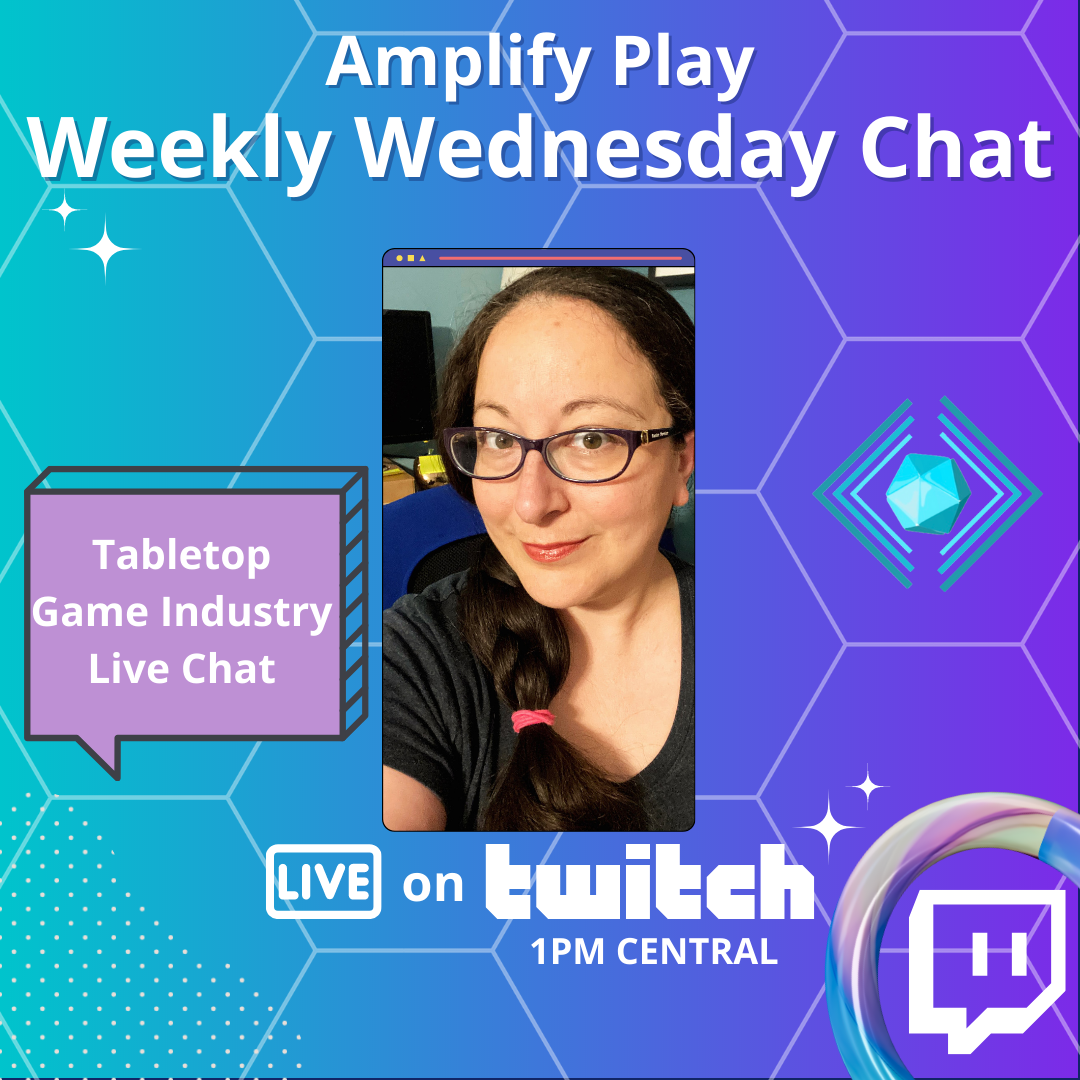
The Amplify Play Weekly Wednesday Chat will air at 1pm central time each week on Twitch.
Let’s talk about diverse creators and projects and how to make our communities more awesome.

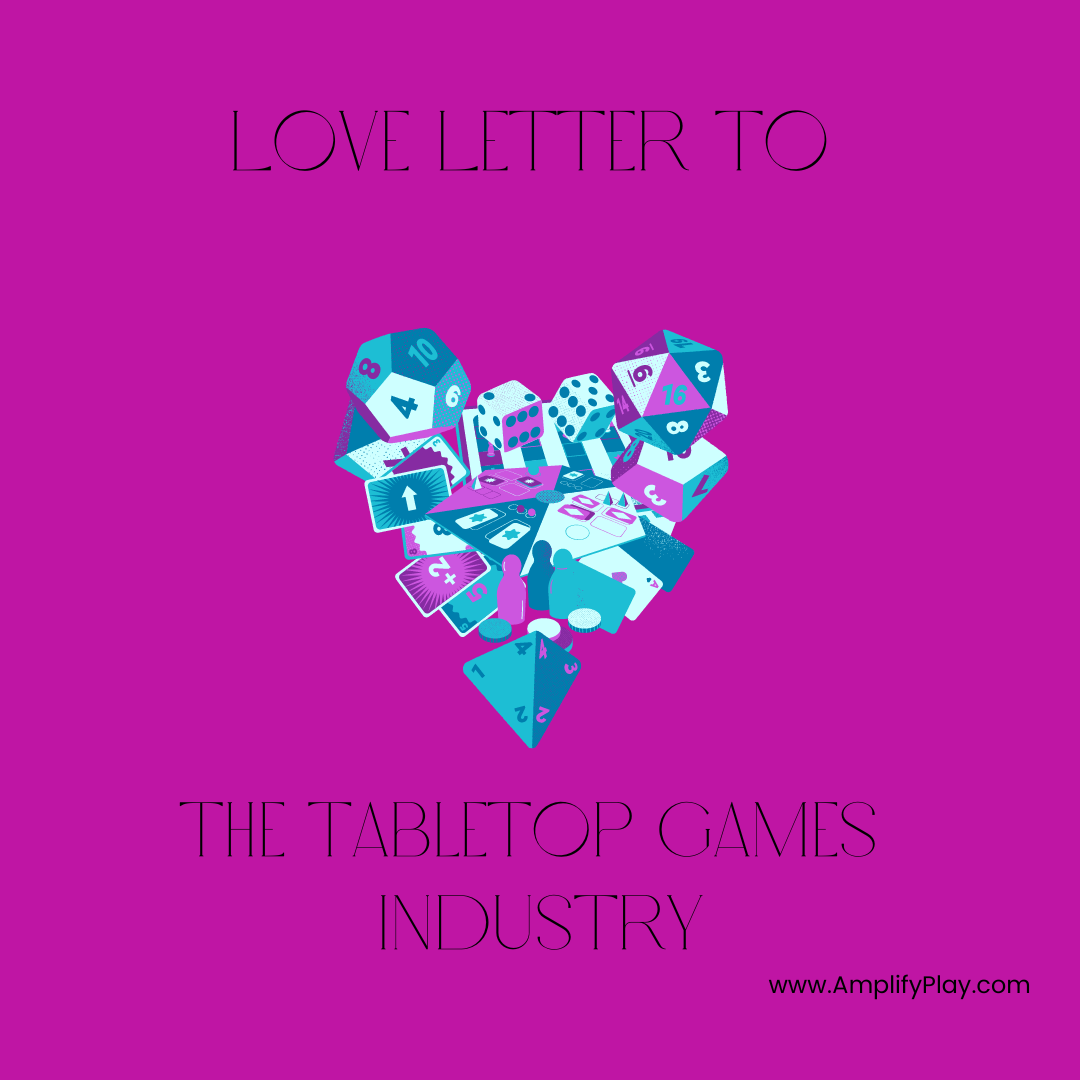
February 14, 2023
In my broader advocacy work, I often come across folks who have no concept of the tabletop board game hobby, much less the industry. While the industry is expected to reach $3.63 billion in revenue in 2023, up from $3.13 billion in 2022, it is still a very niche market; one that sometimes fascinates and other times confounds people outside its sphere of influence.
Part of the confusion is how broad the hobby is as opposed to an individual’s perception. Tabletop board games as an industry encompass everything from traditional card games to collectible and living card games, classic board games to Euro and cooperative board games as well as role playing games, dice games, and all of the myriad accessories to support all of these various types of games. Someone outside the hobby usually associates board games with one or two particular experiences, whereas someone who considers themself part of the hobby, even if they chose to only participate in one aspect, are at least aware that a multitude of options do exist.
What I’d want people who are less familiar with the hobby to understand is that what makes it so popular is why they should embrace it. A lot of these people assume games are for kids or are not serious endeavors. But to that I’d ask why should youth have a monopoly on imagination or why fun can’t be taken seriously.
In fact, fun is taken very seriously in the broader entertainment industry. The difference between games and most of the rest of the entertainment industry is agency. In the traditional entertainment model, producers create and consumers receive entertainment; games flip this model so that consumers create their own entertainment with producers facilitating the tools to do so.
And that’s why I love this industry. That’s why it’s worth working towards making it even more awesome for everyone. Games enable everyday individuals to create their own entertainment catered to their unique social circles.
More than entertainment though, games have the power to teach, inspire, & connect. We can learn soft skills and hard facts through games. In addition to practicing math, spatial relations, vocabulary and physics, games also allow us to practice critical thinking, communication, cooperation, and empathy.
But most importantly, and more than most other forms of entertainment, games connect. They foster a sense of belonging. This is the case for both casual groups that meet to enjoy each other’s company while playing their game(s) of choice, for highly competitive players who bond over their passion for the game and find a sense of belonging when they compete, and everyone in between.
So this is my love letter to an industry I believe in. One that is often misunderstood, like so many of its players. This is an industry that embraces the odd, the imperfect, the outsider. And that’s exactly why expanding inclusion is a natural next step. In my experience, most people are interested in including everyone at the table, even if some need help seeing that the way that happens can and should be improved upon.
The industry is growing (16% year over year is phenomenal) precisely because more diverse people are getting into it. As more diverse people join the hobby, some of them will go on to be interested in careers in the industry. This in turn will broaden the hiring pool, thus creating a more diverse workforce for the industry. And as a result the hobby will appeal to even more people. Which again will grow the industry further, but only if we continue to take steps to nurture diverse inclusion and representation.

Conversations about diversity sometimes get focused on a particular type of diversity, a topic I’ll cover more in this Wednesday’s live chat.
Representation matters across the board, from your suppliers, to your events, as well as your own policies.
🔹Source sales product from underrepresented groups.
🔹Sponsor and promote events to engage underrepresented groups.
🔹Establish, make accessible and promote your organization’s anti-harassment policies.










Join us at 1pm central time on every first Thursday of the month for a free tabletop games industry networking zoom.
Let’s talk shop, chat about what we’re excited about and trade ideas for how to make our industry even more awesome.
Sign up here!

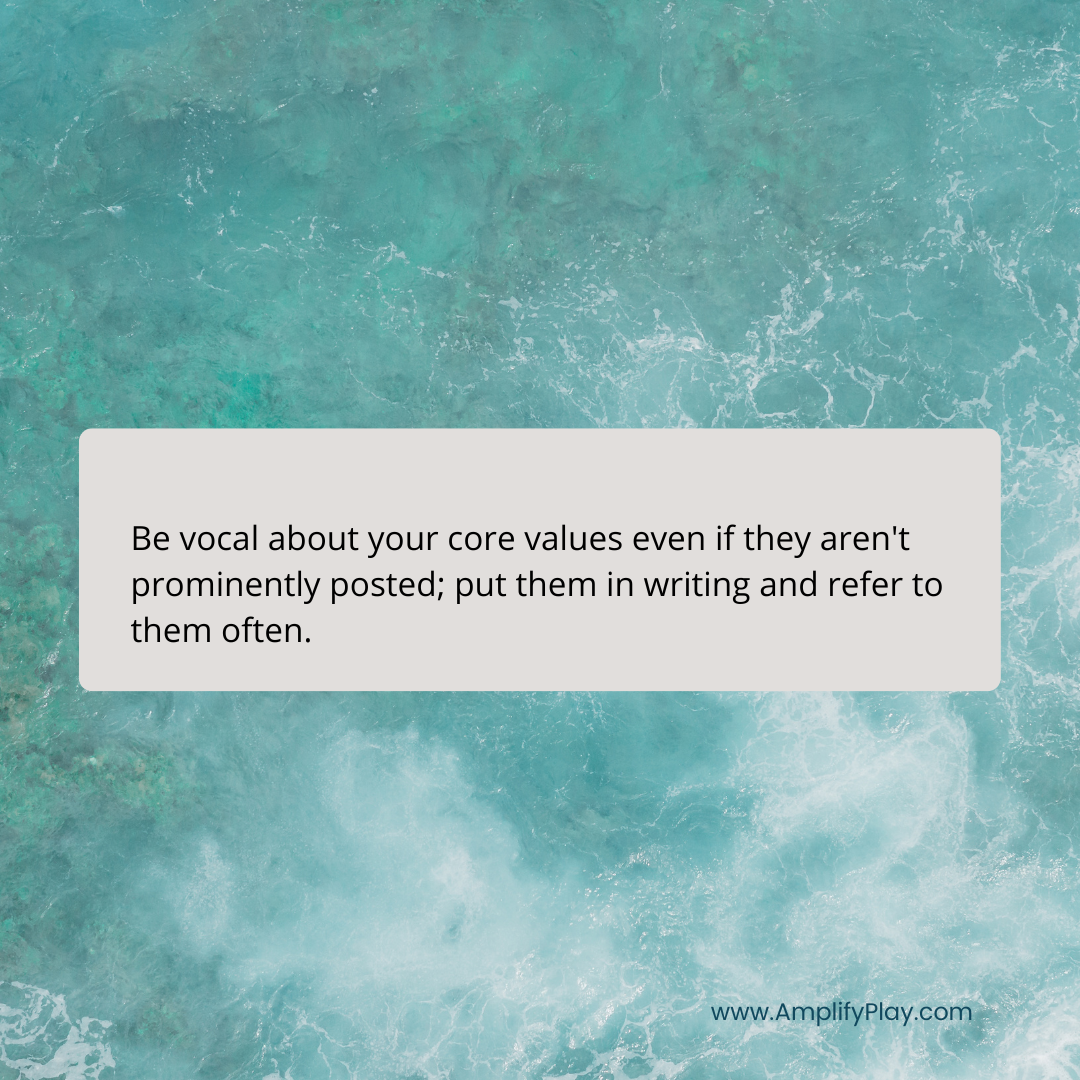
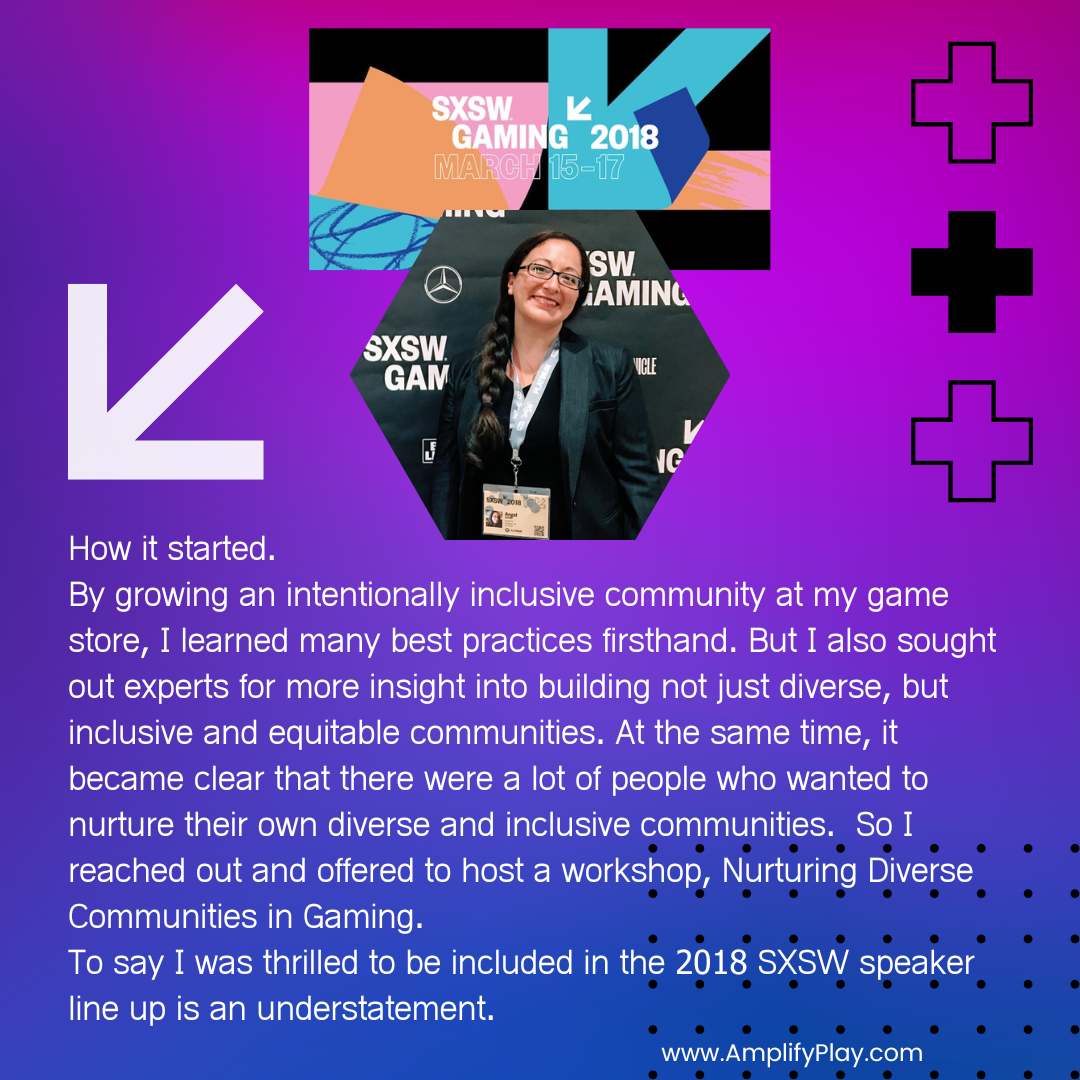
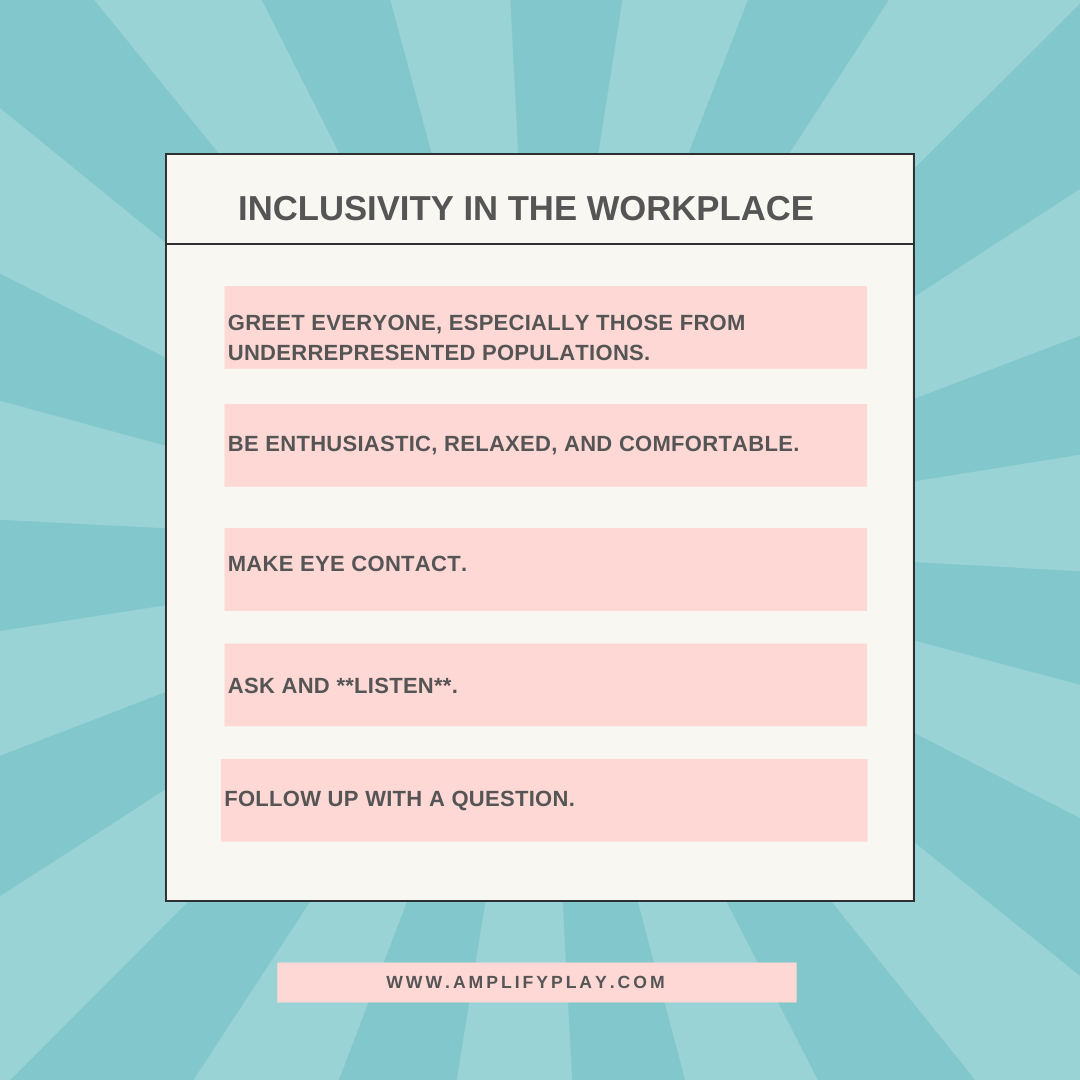
 Greet everyone, especially those from underrepresented populations.
Greet everyone, especially those from underrepresented populations. Be enthusiastic, relaxed, and comfortable.
Be enthusiastic, relaxed, and comfortable. Make eye contact.
Make eye contact. Ask AND *listen*.
Ask AND *listen*. Follow up with a question.
Follow up with a question.The line up for this project is absolutely inspiring!
Seriously, go read the team bios and then back this project.
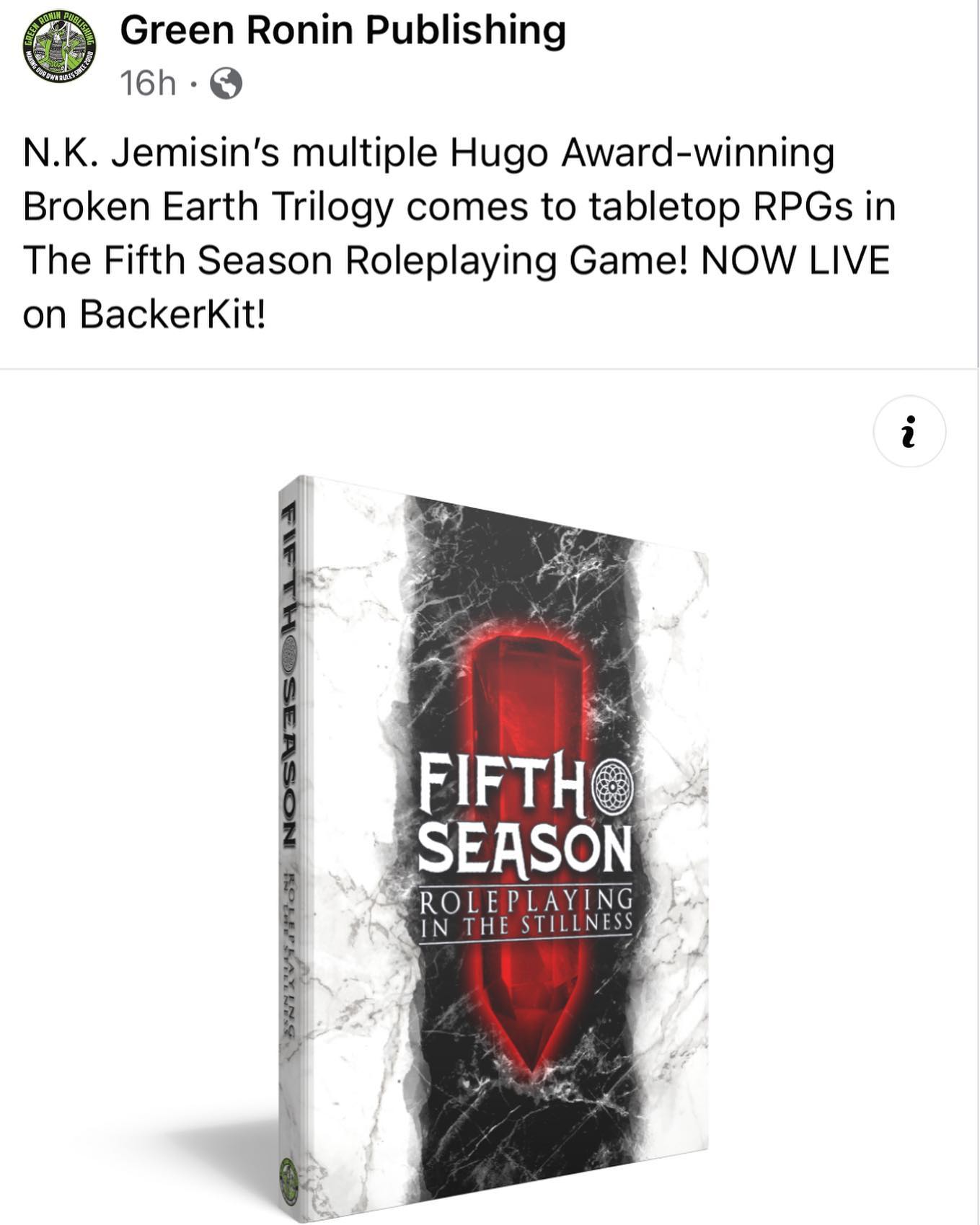
Amplify Play will always disclose when we are involved with a project we promote and we have no connection to this exciting new RPG.